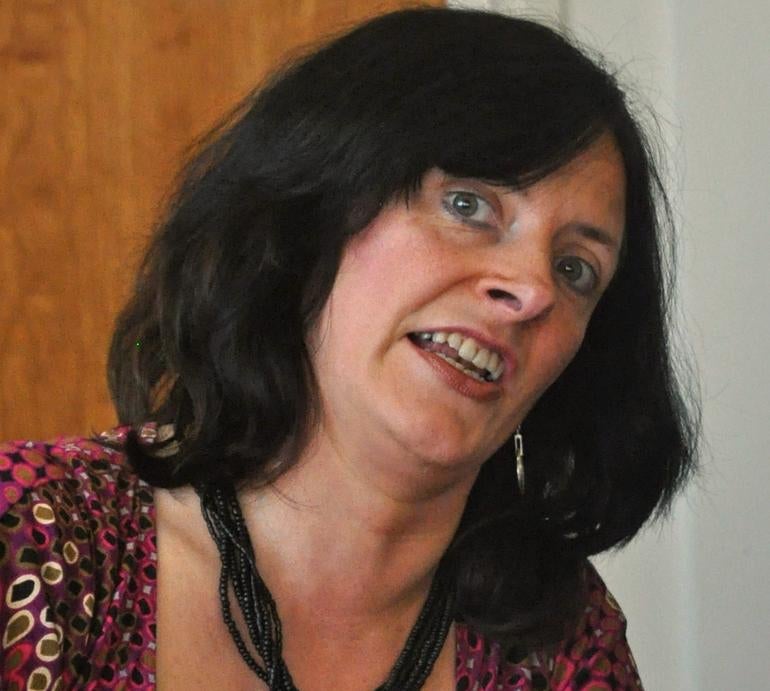
Journalists demonstrated outside a Belfast court and the Northern Ireland Office in London this morning in support of Suzanne Breen, the journalist facing jail for refusing to reveal her sources.
Breen is resisting police attempts to obtain confidential source material about the Real IRA. She is appearing in court this morning where her lawyers will argue against a Police Service of Northern Ireland attempt to use anti-terror laws to try to seize phones, computers and notebooks.
Politicians, human rights campaigners, celebrities and journalists have joined forces to support Breen. Investigative journalist John Pilger and Channel 4’s Jon Snow are among those backing the campaign.
NUJ deputy general secretary Michelle Stanistreet said: “This legal action is an attempt to coerce Suzanne into becoming an informer for the state – threatening her journalistic impartiality and putting her life in danger.
“Impartial journalists are a force for democracy and peace. Impartial journalism will help to build trust between communities in Northern Ireland.
“We urge the Secretary of State to ensure that all legal threats are lifted from Suzanne. It is not in the public interest or the interests of the British government for this case to continue.”
Amnesty International has written to the Northern Ireland Secretary expressing serious concerns about the police attempt to force Breen to hand over their sources.
The campaign group said it had highlighted to Shaun Woodward the very real possibility of the freedom of the press, and investigative journalism in particular, being put at risk.
Breen received a Real IRA claim of responsibility for the murders of two soldiers, Mark Quinsey and Patrick Azimkar, who were shot dead at the gates of Massereene barracks in Antrim in March.
Prominent dissident republican Colin Duffy, 41, from Lurgan, Co Armagh, has been charged with the double murder and police are still looking for other suspects.
Last month Belfast Recorder Tom Burgess sat in private to hear from police why they wanted Breen’s notes – but she and her legal team were excluded from hearing the police evidence.
Patrick Corrigan, Amnesty’s Northern Ireland director, said: “There are real concerns here about possible violation of Suzanne Breen’s human rights.
“By using anti-terrorism legislation and the use of secret evidence, the Government has deprived her of the right to challenge evidence used against her.
“That is an affront to natural justice and international human rights standards.”
Colm O’Gorman, executive director of Amnesty International Ireland, said: “We have reminded the Secretary of State that freedom of the press is a vital part of the right to freedom of expression, guaranteed by international human rights law.
“The failure to defend the right of journalists to protect their sources undermines investigative journalism and the public interest.”
The UN had recommended that journalists should only be obliged to reveal sources in exceptional circumstances, where there was no other way of obtaining information and where the public interest clearly overrode the importance of protecting sources.
“It is doubtful that this test has been satisfied in this case,” O’Gorman said. “Simply put, journalists should not be used as an alternative to proper policing and intelligence-gathering.”
Email pged@pressgazette.co.uk to point out mistakes, provide story tips or send in a letter for publication on our "Letters Page" blog
